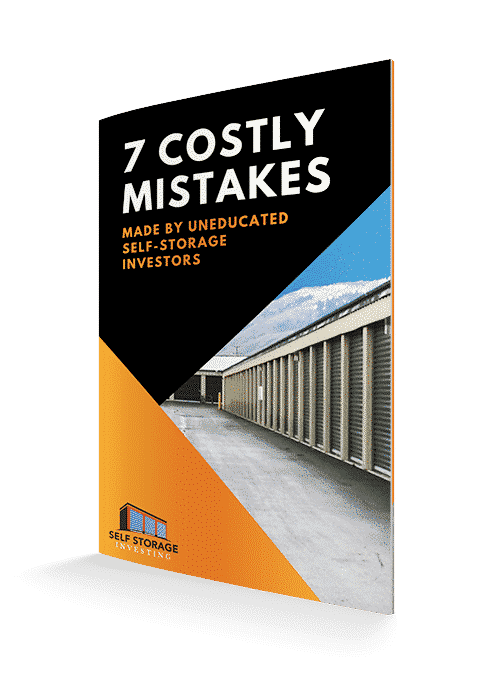We all want to make money; we desire to build wealth. But the bigger question is, how do we do that?
Real estate is a thriving and profitable niche. The American housing market alone is worth over $33.6 trillion, with 67.9% of Americans owning a home. Building wealth in real estate is often less exerting than other investment vehicles.
An aspiring real estate owner can purchase a property by paying the down payment and subsequently paying off the remaining chunk of the total cost, along with interest accrued across time.
For a traditional mortgage, there is almost no way you would pay less than a 20% down payment. But for real estate, you could buy a beautiful property with as little as a 5% down payment.
If you are looking for a low-entry but viable investment vehicle for building wealth, you definitely should check out real estate. Having bad credit card debt or a bad credit score doesn’t significantly inhibit you in real estate. History is strewn with mega-successful real estate investors who started off with poor credit.

And here’s even better news: you don’t need major assets or even sizable capital before getting into real estate.
In real estate, you can start building wealth with just a few hundred bucks in an escrow. Yes, you could start by simply hunting for properties in need of renovations, exploring hard-money lenders, or even flipping contracts. There is money to be made in these ventures regardless of the low entry costs.
Similarly, you will not be forced to part with your major assets to buy a real estate property. With a solid understanding of creative financing, you can get started in real estate investing with little more than a will to succeed.
Here’s another exciting fact for you: 90% of the world’s millionaires were created by real estate investing. How did they do it? We’re here to show you. Below are ten proven ways to improve your personal finance using real estate.
1. Real Estate Investment Groups (REIGs)
Not everyone relishes the active day-to-day administration and management of rental real estate. For this category of investors, it is worth leveraging real estate investment groups (REIGs).
REIGs mirror small mutual funds focusing on investing in rental properties. In these, a company develops or buys a rental property, allowing investors to get onboarded into the group when they buy such properties through the company.
While the REIG company is solely responsible for managing all units of the properties (say in the situation of a condo or block of flats), individual investors can invest in owning several self-contained units.
Consequently, the REIG relieves the individual investor of administrative functions like doing maintenance for the units the investor owns, marketing vacant units, and vetting prospective tenants. For getting all these troubles taken care of, the individual investor dishes the REIG a slice of their monthly rental income. Not bad business, is it?
It is worth recognizing you need reasonable access to financing to invest in REIGs, as the generality of them operate with a capital cushion. Additionally, REIGs investment comes with vacancy risks. Even so, it makes sense to invest in REIGs as they give you a hands-off opportunity to make money via rental properties and enjoy appreciation.
2. Investing in Turnkey Properties
If you are interested in building wealth in the private real estate market, you should think about exploring turnkey property investments. Basically, turnkey properties are fully-renovated apartment buildings that you can rent out immediately after buying.

So, if you do your homework well, you can start earning income at once with turnkey properties upon acquisition.
Turnkey properties are hot cakes for tenants. The only challenge is that they don’t come cheap. This is not unnatural considering that they have already been fully renovated, saving you the migraine of your property’s comprehensive rehabilitation.
Dedicated turnkey real estate companies supply these types of properties, with some even offering you property management services when you buy such properties from them.
This involves them shouldering the maintenance and administrative duties while you sip your sweet cup of coffee in peace. Indeed, this assures you of a steady stream of rental income and involves you doing next to nothing!
Admittedly, many people are nervous about the risks of owning turnkey properties. But here is the good news: a bulk of these risks can be eliminated with due diligence.
A genuine appraisal of the property to ascertain its true value will help. Not all supposedly turnkey properties are worth it. Also, it is crucial to get the right property manager. A good property manager should deputize for you when it comes to tenant sourcing, rent collection, and maintenance.
3. House Flipping
Admittedly, building wealth in real estate via house flipping requires a fair amount of money and experience. Such experience comes in handy in real estate valuation and in renovating and advertising the property.
Unlike long-term investors that buy and retain their properties, in this wealth-building approach, house flippers are continually exploring how to generate income quickly from undervalued homes in need of repairs that the investors buy, upgrade, and then sell for profit.

Such flipped properties are generally not held more than six months after acquisition by the flipper. Given that most real estate flippers don’t have enough spare cash to spend for long on property mortgage, they have to sell the flipped homes within a short period of time. Also, there is quite a significant volatility in the industry as hot markets can suddenly cool.
On the positive side, house flipping gives you a quick profit. What’s more, it doesn’t tie up your capital for long. On the negative, a newbie real estate investor can’t strive in house flipping.
4. Long-term residential rentals
If you don’t have the stomach for house flipping’s rapid turn-arounds, you might want to go for building wealth with long-term residential rentals.
Instead of holding properties only to sell them quickly, you can adopt a method of buying and holding rental properties for longer.
This approach is widespread. You would need some cash in hand to pay for the required down payment. However, based on your individual circumstance, you could get the property with just a small down payment – or even none at all. This may happen if you are going for a property that is already yielding an income flow.
A residential rental with a positive cash flow is a viable real estate investment outlet for building wealth. However, unless the owner of such attractive properties is hard-pressed to sell them (this is typical of personal situations like liquidity needs or divorce), they don’t come readily. But if you can get one of these, the profit can be well worth the hunt.
In long-term residential rentals, you should focus on the location, as that is exponentially connected to the profitability of this business model. Yes, the property’s current state matters, but the location of the property is more important, given that that is something that cannot be changed.
If you can get a long-term residential rental in a great location, regardless of the shape it’s in, that investment can be a great way to overhaul your personal finance for the better.
5. Real Estate Investment Trusts (REITs)
Real Estate Investment Trusts (REITs) are formed when a trust (which here is a corporation) pools money from investors and uses this fund to buy and manage income properties. It is worth noting that, like stocks, REITs are sold on major exchanges.
For these corporations to retain their REIT status, they must disburse dividends accrued from 90% of their taxable profits. The positive spin to this is that REITs can circumvent corporate income tax. REITs are great investment avenues for investors seeking a reliable income inflow.

With REITs, real estate investors have better chances of venturing into nonresidential investments that may not be attractive for a single investor to buy independently. Some of such assets include office buildings and mall facilities.
REITs are an even better option given their liquidity. Since they can be readily traded through the stock exchange, it is effortless to transfer your investments into hard cash.
REITs commonly come as mortgage REITs and equity REITs. The kind of exposure you desire should guide you in your choice between mortgage REITs and equity REITs.
While mortgage REITs tend to focus on real estate financing and mortgage-backed securities (MBS), equity REITs prefer to focus on owning properties, generating rental income for its investors.
6. Hard-Money Lenders
Aspiring real estate investors who don’t qualify for traditional loans can turn to hard-money lenders. These are short-term lenders that provide immediate financing to these investors in the form of an emergency fund.
Bear in mind that hard-money loans come with high interest rates. But, if you are a real estate investor (especially if you’re looking to close on your first real estate deal) that lands on a property deal that is too beautiful to turn down, you can recourse to such hard-money lenders should you lack on-hand capital.
On the other hand, building wealth via real estate investing is possible by becoming a hard-money lender yourself. If you have a fair amount of capital yourself but don’t want to get into the nitty-gritty of everyday real estate, you can still make money from the sidelines by providing these hard loans to real estate investors.
Being a hard-money lender in a field as specialized as real estate investing admittedly may not suit the newbie investor. To maximize your earning prospects as a hard-money lender in real estate, it helps to build robust networks within the real estate market.
These loans have quick returns. This option may be more suitable for the real investor that desires to build wealth rapidly without having to wait several months or years to enjoy returns from the assets they invest in.
7. Invest in Single-Family Homes
Another avenue to create wealth in real estate is investing in single-family homes.
Rentals will always be attractive for investors because mortgage interest rates are flying high. The same ascension can be said of house prices in the market.

Instead of going for multi-family rentals, you can focus on single-family homes. True, multi-family rentals generate more income in the long term, but they require a significant amount of capital and experience to manage – assets that you may not have at present.
Single-family homes are far easier to acquire, cheaper to buy, and less exerting to maintain. Compared to other property types, single-family homes have the highest rates of appreciation. This means more consistent income flow.
Once again, the location of the single-family home is a decisive factor in how much wealth these investments create for you. Consider the placement of potential investment houses carefully before making a purchase.
8. Real Estate Wholesaling
Another strategy to build wealth is real estate wholesaling. In this approach, the real estate wholesaler gets a contract from a property seller and then transfers that very contract to a designated final buyer.
This is a low-budget real estate investment strategy; hence, it is very popular for aspiring investors just getting into the industry. To gain wealth from this strategy, you, the wholesaler, scout the market for undervalued properties.
Upon locating this type of property, the wholesaler arranges a contractual agreement with the property seller. The former then transfers this purchase contract to an end buyer.
Commonly, this end buyer focuses on rehabilitating properties or prefers to steer clear of the rigors of scouting (and negotiating) undervalued properties himself.
The wholesaler then receives a wholesaling fee upon the successful completion of the transaction. Ordinarily, this fee is derived from a percentage of the property’s price (or the total that the end buyer pays). Isn’t that smart – neatly pocketing some sweet dollars by just being in the middle?
Although this option requires almost no financial input (and therefore no financial risk), wholesaling does require a significant amount of work in the form of researching properties. And in addition to locating such properties, you must also negotiate with the property seller will need some talking and source the final buyer.
But if you are ready to put in the time and due diligence, real estate wholesaling can generate sustainable profit for you.
9. Rent Out on Airbnb
Airbnb has been growing steadily for years, and you can make a good amount of money by renting out your property or part of your property through it. Unlike other real estate investment outlets, renting out on Airbnb requires minimal experience and capital.
Traveling is a huge part of contemporary culture. Therefore, travelers are ever seeking alternatives to hotel accommodations. To enjoy the benefits of a personalized home, vacationers prefer to go for vacation rentals listed on Airbnb. Therefore, leasing your space to such guests can be lucrative if done properly.

To build wealth from Airbnb, you have to start with proper planning. Determine the potential risks and how you can maximize your reward. The location matters a lot here, directly affecting the demand for your listing. It would be best if you had your accommodation in a destination that sees a lot of tourist traffic throughout the year.
If you can secure a rental property in popular tourist destinations, you can make a fortune. For example, if you can land Airbnb listings in a highly-trafficked tourist destination like Miami, where there is a huge need for short-term rental properties, you are in for some serious money on a reoccurring basis.
Take note Airbnb (as a real estate investing strategy) may not flourish in all American cities. And, before you jump on the Airbnb bandwagon, remember to research any regulations that your state or city may have in regard to Airbnb.
10. Manage Real Estate Properties
A final way that you can generate wealth from real estate investment is by running a property management business. This suits that class of investors who don’t necessarily want to own rental properties themselves.
There are hordes of real estate investors out there who will gladly outsource the management of their real estate portfolio to you. Some don’t have the experience to autonomously manage their properties, while others could be thoroughly engaged with more pressing projects.

These investors don’t mind paying you a premium if you are good at your job and if you can guarantee them a fair income accrual. On average, property managers are paid anywhere from 8-10% of the monthly rental fee of each property they manage. Isn’t that an income worth salivating over?
Yes, experience is needed in managing properties, but a strong will to learn on the job can suffice.
So, if you don’t necessarily have the capital to buy a property on your own or if you are just getting onboarded into the real estate industry, you could consider managing real estate properties on behalf of real estate investors.
Bonus Strategy: Invest in self-storage
No argument, self-storage may not be among the most popular commercial real estate niches. But such unpopularity doesn’t take an inch from its lucrativeness.
What if I told you the American self-storage investment industry accrues an annual revenue of $39 billion? Yes, there is over 1.7 billion sq.ft of self-storage space spanning 45,000-60,000 facilities scattered across the United States alone.
Little wonder investors seeking alternative investment outlets in today’s ultra-competitive real estate industry are rushing at self-storage investing.
As of March 2020, an estimated 9.4% of all American households rented a storage space. And guess what? Storage space demand is only swelling.
Self-storage is an investor’s darling for many reasons. First, it doesn’t even cost a premium to set up a storage facility. Aside from the relatively reduced construction cost, overhead costs (like maintenance) are not as nagging as other commercial or residential facilities.
What’s more, self-storage facilities need minimal management (unless the facility is sprawling), with impressive self-sufficiency. Given that most self-storage tenancy operates monthly, there is a higher probability of hiked rental rates.
For all these, self-storage has a sizable income inflow. Oh, we are not forgetting the flexibility of self-storage spaces, are we?
Self-storage investing is one of the most flexible niches in the commercial real estate industry. It survives turbulent economic cycles since humans will always need space to store things.
Mistakes to avoid when building wealth via real estate investing
Some critical mistakes can hurt your wealth-building capacity as a real estate investor. Here’s some of these potholes to avoid.
Not Having an Adequate Financial Plan
If you don’t plan adequately before entering a real estate transaction, you might find yourself regretting your purchase. However, financial planning is an easy way to avoid this.
Financial planning is a core part of real estate investing. What financial future do you desire? How much risk are you willing to take on? Next, what kind of real estate portfolio can help you achieve this with the most minimal exertion?
In a hot market, impulsive buying can seem like a good idea, but you should avoid buying a property without proper research and planning. Get a financial advisor if necessary to give you an objective analysis of the market so that you can ensure that you are getting maximum value.
Lacking Due Diligence
Uncertainty is the last thing you want when you’re trying to build wealth with real estate investing. Before you put your hard-earned money into a real estate deal, ask the seller or other authorities on the property as many questions as you need to.
This goes hand-in-hand with financial planning, but the questions you must ask here involve the house itself rather than your own finances. Find out as much as you can about the property and the neighborhood in general. Also, find out about the personality or reputation of the property manager.
In your research, find out if the property is in the vicinity of a commercial site. Are there expansion plans for that area any time soon (or in the long term)?
What are the climatic conditions of the area where you are getting the project? Is it in a flood-prone area? Does the area have a notoriety for pest and termite issues? How about the crime rate?
You should also research if the house you are aiming to acquire has permit concerns that would need addressing. Now, how about the current homeowner? What are their reasons for selling the property?
By researching the answers to these questions, you’re much more likely to make your real estate investment confidently and successfully.
Catching the DIY (Do It Yourself) virus
You can do many things on your own: brushing your teeth and grilling your barbecue, for example, but definitely not serious real estate investing.

If you want to scale your real estate investing from just a passive side hustle to an enviable and sustainable income source, you need a team of professionals under you who can tackle the aspects of the business that you might not be able to do yourself.
The real estate market is fast evolving with increasing sophistication. You should leverage the services of a financial planner to help you navigate your deals in your particular real estate market. Make friendships with experts in your field who can advise you on this, as well.
It would be helpful to have your inner real estate circle equipped with an experienced real estate agent, attorney, insurance agent, home inspector, and handyman, if possible.
When you have such specialists in your real estate investment team, it becomes much easier to identify flaws or abnormalities before paying for a property. This way, you save yourself from buying into a home with defects that can decrease the investment’s profitability in the long run.
And, finally, remember that when building wealth as a real estate investor, you have to prioritize your tenants’ needs. As a property owner, you are only as happy and peaceful as your tenants.
At Self Storage Investing, our communities and programs are masterfully designed to help you learn the game-changing secrets of real estate investing. If you want to get rich in real estate without breaking a sweat, then reach out to us today.





